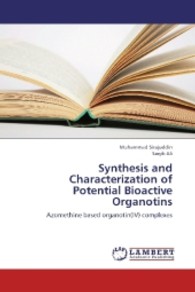- ホーム
- > 洋書
- > 英文書
- > History / World
Full Description
The 1898 annexation of Hawaiʻi to the US is often framed as an inevitable step in American expansion—but it was never a foregone conclusion. By pairing the intimate and epic together in critical juxtaposition, Christen T. Sasaki reveals the unstable nature not just of the coup state but of the US empire itself. The attempt to create a US-backed white settler state in Hawaiʻi sparked a turn-of-the-century debate about race-based nationalism and state-based sovereignty and jurisdiction that was contested on the global stage. Centered around a series of flash points that exposed the fragility of the imperial project, Pacific Confluence examines how the meeting and mixing of ideas that occurred between Hawaiians and Japanese, white American, and Portuguese transients and settlers led to the dynamic rethinking of the modern nation-state.
Contents
Contents
List of Illustrations
Acknowledgments
Author's Note on Hawaiian Language Usage
Introduction
1. Emerging Nations, Emerging Empires: Interimperial Intimacies and Competing
Settler Colonialisms in Hawai'i
2. At the Borders of Nation and State: The 1894 Constitutional Convention
3. How the Portuguese Became White: The Search for Labor and the Cost of Indemnity
4. The Shinshu Maru Affair: Barred Landings and Immigration Detention
5. Historicizing the Homestead in Wahiawa Colony: From "American Family Farm" to
Industrial Plantation Economy
Conclusion
Notes
Bibliography
Index







